#Msc in Germany
Explore tagged Tumblr posts
Text
#germany public university list#top 10 public universities in germany#best public universities in germany for international students#top public universities in germany#best public universities in germany#germany summer semester#german consultancy in kochi#best german consultancy in kerala#cost of university in germany#1 year masters germany#summer semester in germany#1 year courses in germany#study ms in germany#postgraduate courses in germany#postgraduate in germany#msc in germany for international students#germany university for ms#ms in germany cost#apply germany university#semester abroad in germany#higher studies in germany#cost of master's degree in germany#learning german in germany#masters of education in germany#courses for international students in germany#msc in germany#masters in it germany#germany study for international students#germany management courses#international universities in germany
1 note
·
View note
Text
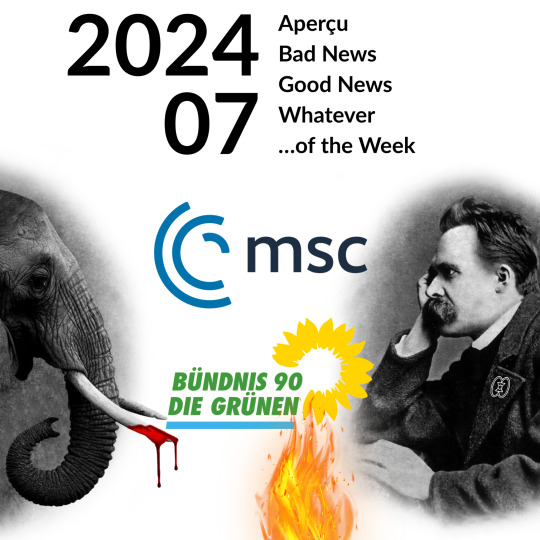
2024 / 07
Aperçu of the Week:
"Time isn't the main thing. It#s the only thing."
(Miles Davis, American trumpeter, bandleader, and composer - and among the most influential and acclaimed figures in the history of music)
Bad News of the Week:
Sometimes things get rough in the political business. Sometimes you get pelted with eggs, as the unification chancellor Helmut Kohl once did in the East. Or with a bag of paint, as happened to Foreign Minister Joschka Fischer. Or even end up in a wheelchair like Bundestag President Wolfgang Schäuble, who was stabbed. However, all these incidents - as tragic as they are - are isolated cases. In which an individual perpetrator, often with a psychological problem that was not diagnosed in time, commits an individual act. It is certainly not possible to speak of a systemic problem. This seems to be changing in Germany.
The increasing aggression against the Greens is becoming more and more frightening. The platform of this party has always had a tendency to polarize. After all, they want to achieve fundamental change. And unlike The Left, which also wants this, they are regularly involved in governments. And stand out more in the context of the otherwise dominant "Keep it up..." - keyword "prohibition party". Of course you can be against it, comment on it on social media, take it to the streets and demonstrate. But please do so in a civilized manner, as it has to be in a democratic society.
Unfortunately, this discourse has not been civilized in recent weeks. It started when the Green Minister for Economic Affairs, Robert Habeck, was prevented from leaving a car ferry by angry farmers. There was a scuffle with the police, and the public prosecutor's office is now investigating on charges of coercion. And now a Green Party rally - on the traditional "Political Ash Wednesday" - had to be canceled at the last minute. Again because of angry farmers blocking roads. This time, several police officers were injured, cars were demolished and fires were lit. Even Interior Minister Nancy Faeser from the rival Social Democrats considers this to be unacceptable, calling it a "brutalization and poisoning of the discourse". She is quite simply right.
Good News of the Week:
Once a year, the Munich Security Conference MSC, the world's most important security policy meeting, takes place in Munich. It is characterized not only by the official conference programme, but also by the various meetings that take place behind the scenes. One pleasing example: Armenia and Azerbaijan have been at war for years. Under the mediation of German Chancellor Olaf Scholz, both heads of government have now met in Munich. And then actually announced that they wanted to resolve their conflicts peacefully.
The primary topic was, of course, the Gaza war with a tendency towards a full-size Middle East conflict. The tone towards Israel is becoming harsher. At the MSC, US Secretary of State Anthony Blinken called for a Palestinian state to end the "vicious circle". And is even receiving support from China: this is the only way to achieve peaceful coexistence in the region, said Chinese Foreign Minister Wang Yi, who was also present. It is fitting that French President Emmanuel Macron announced after a meeting with Jordan's King Abdullah II in Paris a few days ago that he does not want to close his mind to the recognition of a Palestinian state: "We owe this to the Palestinians, whose expectations have been trampled on for too long."
Naturally, the Ukraine war was also in focus. President Volodymyr Zelensky appealed for further support at the security conference. There is a lack of long-range weapons. Kremlin leader Putin must not succeed in turning the next few years into a catastrophe. And the Kremlin critic Alexei Navalny, who has just died in a Siberian prison camp in an as yet unexplained manner, is a victim of Vladimir Putin, just like Ukraine, says Selensky. Shortly beforehand, he had signed a security agreement with Germany, which provides the most military aid to Ukraine after the USA.
Other remarkable things also happened in Munich. For example, US Vice President Kamala Harris reaffirmed that the USA is firmly rooted in NATO. Out of responsibility, but also out of self-interest. Donald Trump's current statements on the subject obviously make this statement seem necessary. "Take him at his word, take him seriously. He means what he says," said former US Secretary of State Hillary Clinton, who was also present in Munich.
And finally, NATO Secretary General Jens Stoltenberg warned: "What happens today in Ukraine could happen tomorrow in Taiwan." China's Foreign Minister Wang nonchalantly replied that "Taiwan (remains) part of Chinese territory and the Taiwan issue (is) an internal Chinese matter." Overall, I find it gratifying that even in these times, people are still talking. You get the impression that diplomacy and negotiations are not yet at an end.
Personal happy moment of the week and other categories...
I'm sorry: this week (which piece was published quite late anyway) left me no time to deal with "lighter topics". Next week!
Post Scriptum
It has become apparent: Donald Jessica Trump has been convicted of fraud in court in New York City. The fine amounts to a total of 463.9 million dollars. Many assume that he does not have this in cash. And therefore has to take out a loan or borrow against real estate. Curiously, this fits in with the proceedings - because they were about how Trump manipulated property values in order to obtain cheaper loans. This will now work neither for this personal loan, which he now needs, nor for future deals. That undoubtedly hurts him.
Another decision by Judge Arthur Engoron will hurt him even more. He not only stripped Trump of the management of his own company, but also banned him from doing business in the state of New York for three years, Donald Jr. and Eric for two years and the top managers Weisselberg and McConney for life. In short: the entire top management of the Trump Organization no longer has any say. Engoron transferred their supervision to retired judge Barbara Jones, who thus effectively became Trump's superior.
In Europe, we can only shake our heads at how a legally convicted fraudster and sexual offender can stay in the political business. In Germany, for example, several top politicians have already had to give up their careers because of incorrect citations in their doctoral theses. "He's been a fraud his whole life," commented author Tony Schwartz, who ghostwrote Trump's manifesto "The Art of the Deal". "Today it's just become official." Now it just needs to have a deterrent effect on his voter base. Dreaming will probably still be allowed...
#thoughts#aperçu#good news#bad news#news of the week#politics#time#miles davis#the greens#germany#democracy#protest#munich security conference#msc#gaza#ukraine#munich#middle east#nato#sorry#donald trump#arthur engoron#europe#dreaming#the art of the deal#new york city#olaf scholz#prohibition#robert habeck#vlad plasmius
7 notes
·
View notes
Text
MSC excludes Germany’s AfD, BSW amid rising tensions
The Munich Security Conference (MSC), one of the world’s premier defence forums, barred Germany’s Alternative for Germany (AfD) and the Sahra Wagenknecht Alliance (BSW) from attending this year’s event, according to Politico.
The decision underscores deepening divisions between Germany’s political mainstream and populist factions ahead of the February 23 national election. MSC Chair Christoph Heusgen confirmed the exclusion on Monday, citing both parties’ rejection of the conference’s core principle: “Peace through dialogue.”
The move follows their walkout during Ukrainian President Volodymyr Zelensky’s address to the German parliament in June 2023, which Heusgen described as a tipping point.
Leaving the room when a head of state [speaks to] parliament is the opposite of dialogue. That’s not the kind of behaviour I want to see at this conference.
Stance on Ukraine
Both the AfD and BSW gained traction by capitalising on anti-establishment sentiment. They opposed military aid to Ukraine and advocated for closer ties with Moscow, stances that had resonated with disillusioned voters, especially in former East Germany.
During Zelensky’s speech, AfD leaders Alice Weidel and Tino Chrupalla dismissed the event as “a platform for reconstruction begging,” while the BSW accused the Ukrainian president of fueling “a highly dangerous escalation spiral.”
Traditionally, the MSC welcomed all parties represented in the Bundestag. However, since taking over in 2023, Heusgen had deviated from the norm, first excluding the AfD and now extending the ban to the BSW.
Inviting AfD politicians would go against the spirit of our conference founder, Ewald-Heinrich von Kleist [the German officer involved in a failed 1944 plot to assassinate Hitler].
The exclusion of the AfD and BSW adds fuel to an already polarised election campaign. Recent polls show the AfD performing strongly, while the BSW is drawing support from disenchanted voters.
As Germany approaches a pivotal election, the MSC’s decision reflects broader tensions over the role of popular parties in shaping the country’s foreign and security policies. The conference’s focus on dialogue and cooperation stands in stark contrast to the AfD and BSW’s confrontational stances, setting the stage for a contentious political battle in the weeks ahead.
Read more HERE

#world news#news#world politics#europe#european news#european union#eu politics#eu news#germany#germany news#germany politics#german politics#msc#alice weidel#alternative for germany#bsw#sahra wagenknecht#tino chrupalla#ukraine#ukraine war#ukraine conflict#ukraine russia conflict#ukraine russia news#ukraine news#war in ukraine#russo ukrainian war#russia ukraine war#russia ukraine conflict#russia ukraine crisis#russia ukraine today
0 notes
Text
0 notes
Link
#foreignaffairs#un#unitednations#msc#munichsecurityconference#peace#sipri#nobelprice#detention#climaterescue#unanthemproposal#unanthem#aurora#uno#weu#nato#diplomacy#climate change#unreform#veto#uncampus#aussenpolitik#germany#europe#cop28#oliverfredericdieck#europa#european union#Europawahl#election 2024
0 notes
Text
#immigrationconsultant#germany#university#topuniversities#europe#bsc#msc#phd#courses#SkilledWorker#GermanyVisa#SwedenVisa#ITJobs#EngineeringJobs#HealthcareJobs#WorkAbroad#JobOpportunities#VisaConsultation#CareerAbroad#HighDemandJobs#GermanWorkVisa#SwedishWorkVisa#JobSearch#InternationalCareer#SkilledMigration#WorkinGermany#WorkinSweden#GlobalOpportunities#JobMarket
0 notes
Text
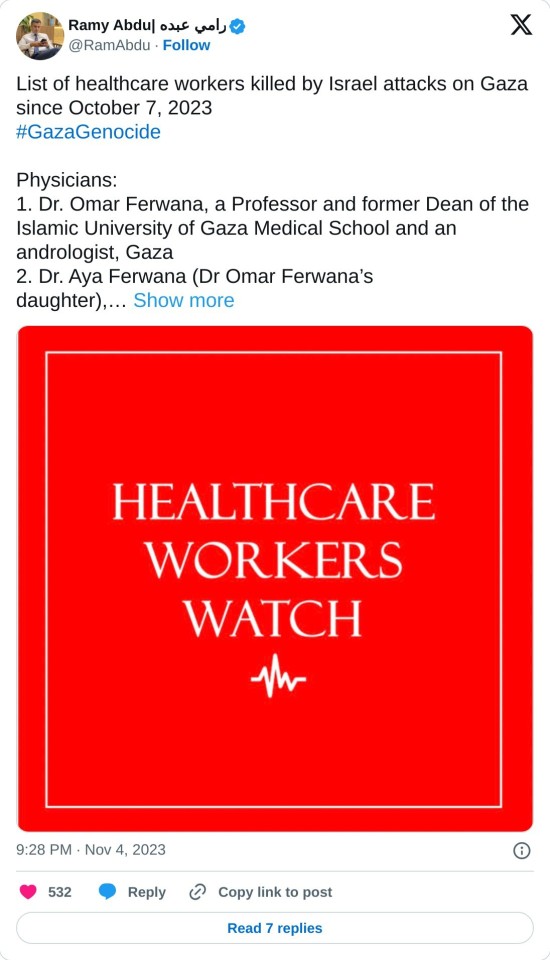
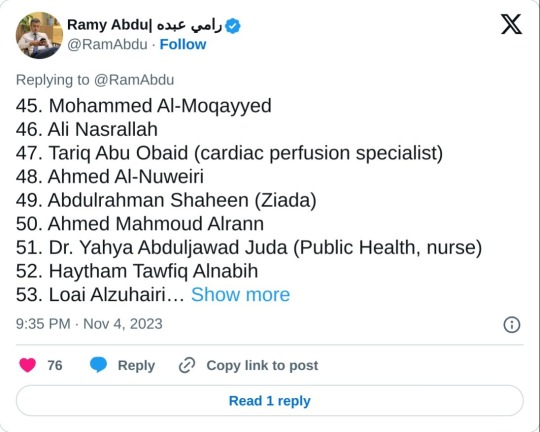
List of healthcare workers killed by Israel attacks on Gaza since October 7, 2023
Physicians:
Dr. Omar Ferwana, a Professor and former Dean of the Islamic University of Gaza Medical School and an andrologist, Gaza
Dr. Aya Ferwana (Dr Omar Ferwana’s daughter), a family medicine specialist, Gaza
Dr. Medhat Saidam, a senior burn and plastic surgeon, Shifa Hospital, Gaza and MSc in Burn Care alumnus from Queen Mary University of London
Dr. Mohammed Dabour, a consultant pathologist and dean of pre-clinical medicine at the Islamic University of Gaza Medical School
Dr. Tamer Al-Khayyat, an anesthesiologist and intensivist, European Gaza Hosptial, Rafah
Dr. Mahmoud Al-Khayyat, an internist in Rafah and Dr Tamer Al-Khayyat’s father
Dr. Razan Al-Rakhawi (Dr Tamer Al-Khayyat’s wife), an obstetric and gynecologist, Emirati Women’s Hospital, Rafah
Dr. Sereen Al-Attar a consultant obstetric and gynecologist at Nasser Hospital, Khan Younis and an Assistant Professor at the Islamic University of Gaza Medical school
Dr. Saeed Drabieh, a urology resident, Shifa Hospital
Dr. Mohammed Al-Samarai, Iraqi volunteer intern physician
Dr. Rafat Abou Foul, radiologist, Beit Hanoun Hospital
Dr. Amal Al-Maqadma, family medicine specialist, Rafah
Dr. Ibtihal Al-Astal, intern doctor, Khan Younis
Dr. Duaa Awad, emergency medicine doctor, Al-Aqsa Hospital
Dr. Moath Nabaheen, emergency medicine doctor, Al-Aqsa Hospital
Dr. Youssef Jadallah, intensivist and anesthesiologist (based in Germany, from Gaza but was visiting his family)
Dr. Inas Yousef, emergency medicine doctor, Al-Aqsa Hospital
Dr. Israa Al-Ashqar, anesthesiology resident, Shifa Hospital, Gaza
Dr. Abdallah Ashour, emergency medicine doctor, Nasser Hospital, Khan Younis
Dr. Hamam El-Deeb, orthopaedic surgery resident, Shifa Hospital, Gaza
Dr. Munther Abu Sariya, consultant pediatrician, Mohammed Al-Durra Pediatric Hospital
Dr. Doaa Shammout, pediatric resident, Rantisi Hospital, Gaza
Dr. Baraa Abu Elaish, intern doctor, Gaza
Dr. Abdlallah El-Helou, general practitioner/internal medicine doctor, Indonesian/Beit Hanoun Hospital
Dr. Muhannad Ezzo Afana, general practitioner, Gaza
Dr. Mohammed Refaat Mekki,
Dentists:
Dr. Ahmed Al-Hourani
Dr. Nada Mahdi
Dr. Ibrahim Al-Dali
Dr. Bilal Lubbad
Dr. Marwa Swelim
Dr Areej Eid
Dr. Tawfiq Al-Farra
Dr. Abdallah Baghdadi
Dr. Jameel Tarazi
Dr. Maysoon Al-Nuweiri
Dr. Mona Dughmush
Dr. Noha Dughmush
Dr. Mamoun Afana
Dr. Mohammed Afana
Dr. Anis Mekki
Dr. Tasneem Abdulnabi
Medical/dental students:
Bisan Halasa
Shaimaa Saydam
Abedelrahman Abu Shammala
Nour Al-Ashqar
Yaseen Al-Akhras
Osama Abu Safia
Duha Dughmush
Haneen Al-Shannat
Abdallah Abu Jayab
Zainab Azzam
Mohammed Abu Jiadan
Medical Scientists:
Prof. Salah El-Din Zanoun
Prof. Ahmed Al-Dalo
Prof. Ameed Mushtaha (Head of laboratories department and blood banks
Nurses:
Mohammed Lubbad
Mohammed Al-Azzaiza
Ahmed Moshtaha
Rami Lubbad
Somaya Temraz
Mohammed Rafat Gomaa
Osama A'eed Abu Safiya
Saber Al-Nimnim
Mohammed Hamad
Mohammed Al-Baz
Suleiman Abu Zour
Badr Mohammed Abu Daqah
Shaimaa Rayan (Midwife)
Maryam Abou Daher
Kefah San’allah
Walaa Adwan (Midwife)
Rawaa Al-Thalathini (Midwife)
Samah Rasheed (Midwife)
Rida Al-Masri (Midwife)
Ibrahim Abou Isaac
Amjad Abou Ouda
Ibrahim Al-Farra
Aya Al-Shrafi
Tamer Al Efesh
Momen Mansour
Asmaa Al-Asar
Feras Ftaiha
Diaa Bardaweel
Rana Shalaby
Itemad Miqdad
Zainab Al-Sharafi
Hamdan Malaka
Suheer Jbara
Hassan Al-Hennawi
Sabha Al-Sherafi
Azmi Al-Jamal
Yousef Al-Shareef
Hadeel Fanqa
Emad Esleem
Enas Al-Zeen
Heba Salamah
Nuha Esleem
Amro Masoud
Hanya Qudaih
Mohammed Al-Moqayyed
Ali Nasrallah
Tariq Abu Obaid (cardiac perfusion specialist)
Ahmed Al-Nuweiri
Abdulrahman Shaheen (Ziada)
Ahmed Mahmoud Alrann
Dr. Yahya Abduljawad Juda (Public Health, nurse)
Haytham Tawfiq Alnabih
Loai Alzuhairi (Nursing student)
Saleem Abu Zour
Waleed ElMahalawi
Rola Althalathini (Midwife)
Duaa Ashour
Amer Elramlawi
Safa Zeino
Saja Doghmosh
Moayad Ezzo Afana
Ramadan Doghmosh
Moemen Arab (Nursing student)
Oun Nofal Ashour (Nursing student)
Paramedics (EMS providers):
Marwan Abou Raida
Hatem Awad
Khalil Al-Sharif
Ahmed Al-Dahman
Yousri Al-Masri
Ahmed Abdel Rahman
Mohammed Al-Ghaliz
Mohammed Ali
Iyad Salim
Abdelrahim Abou Baid
Alaa Abou Ghanima
Naji Al Fayoumi
Mohammed Qateet
Tareq Ashour
Mahmoud Abou Mashayekh
Nafeth Al-Natour
Mahmoud Othman
Mohammed ElOmour
Ibrahim Matar
Yasser Alnaseri
Physiotherapists:
Ahmed Al-Masri
Ahmed Sameh Abou Herbeed
Shaimaa Sbaih
Mayar Al-Wahidi
Ahmed Ashraf
Shahrazad Al-Akhras
Nour Ibrahim
Pharmacists:
Ahmed Al-Jerjawi
Aziz Elfarra
Afnan Al-Astal
Shereen Abou Jazar
Eman Abu Al-Jalil
Safaa Hasouna
Ibraheem Meqdad
Mohammed Ali
Maysaa Khader
Nisreen Al-Dammagh
Sally Al-Aydi (Pharmacy student at AlAzhar University)
Mohammed Al-Shannat
Lina Abu Mualaileq
Noor Ibean
Haneen Albasyouni
Amira Dahman
Rawand Albanna
Khaled Abu Ma’ala
Amal Mekki
Abdullah Altartori (Pharmacy student at AlAzhar University)
Asmaa Abu Salah (Pharmacy student at AlAzhar University)
Mohammad Alshami
Lab technicians/clinical microbiologists:
Natheer Shaban
Asmaa Hijazi
Rawan Yassin
Alia Al Hinnawi
Maryam Kabaja
Nahid Abdullatef
Mohammed Abu Karsh
Mohammed Shabaan
Riham Elkahlout
Ismail Sharaf
Taiseer Alghouti
Abdulmohsin Abu Alrous
Duaa Jad Allah
Optometrists:
Omar Khorsheed
36 notes
·
View notes
Text
Rumour has it that Macron will come for a visit next week. Rumour also has it that Ze will travel to the MSC mid-February (possibly tied with an official Germany visit).
#listen emmanuel ... ma cherie ... i have the PERFECT idea#you should absolutely travel to ukraine on february 6#and DEMAND that the first lady is present mon amour#yk protocol and out of politness and since you and your wife hosted olena in paris and all that#vova gets his security agreement and you get to see the first lady#come one emmanuel ask#you can do it#believe us#youre doing eeeeeveryone a favour#especially your vova
7 notes
·
View notes
Text
my friend from physics days is doing a physics MSc in germany and suddenly the guy ONLY spends his time either climbing snowy mountains for one billion hours or going to opera shows no third option lolllll obsessed
6 notes
·
View notes
Text

Berk Atan as Prince Hamid Osmanoğlu
Disclaimer: this character profile was created specifically to fit Prince Hamid on Meant To Be universe . I unfortunately don't own the character, I don't assume to know everything about him and I have no intention to affirm this is exactly who he is and how other people should write him. I'm merely a hardcore enthusiast of this lovely character and I do my best to keep his essence while adding a few headcanons of my own.
Name: Hamid Osmanoğlu
Nationality: Turkish
Birthdate: December 3, 1991.
Hometown: Istanbul, Türkiye
Current Residence: Ithaca, NY, USA
Occupation: Envoy of Türkiye in the United States of America, graduate student of MBA Economics and Management at Cornell University
Talents/Skills: public speaking, a knack for languages, charm, cooking, self-defense and combat skills.
Parents: Murat Osmanoğlu and Raisa Doğan-Osmanoğlu
Siblings: Nesrin Osmanoğlu-Aksoy, Malak Osmanoğlu, Sevim Osmanoğlu.
Closest relatives: Ahmet and Halime Osmanoğlu (uncle and aunt), Osman Osmanoğlu (grandfather - deceased), Kaan Aksoy (brother in-law).
Background: First born of Ambassador of Türkiye in Australia Murat Osmanoğlu and prosecutor Raisa Doğan-Osmanoğlu, Hamid is easy going, perceptive and polite, has the ability to make friends everywhere he goes and charms everyone with his sense of humor and kind heart. With an impressive wit and knack for languages, he's fluent in seven languages (Arabic, English, French, German, Hindi, Mandarin and Spanish) aside from his native tongue. He fell in love with International Relations when he was nine and studied Economics and Finance at Bahcesehir University (2008-2011), hoping to follow his father's footsteps and become a diplomat.
To please his mother, he studied Law in Cambridge (2012-2015), worked with her for six months and quit to spent a month traveling with his father. He returned to Cambridge to get a Msc in International Relations and Politics (2016-2018), getting his first job at UK Parliament, where he worked with Earl Vincent Foredale.
He enrolled in MBA Economics and Management at Cornell University (2018-2021) and now works as an envoy of Türkiye in the USA, taking a job as legal advisor right after that.
What's his family like?
The Osmanoğlu family (on his father side) is composed by direct descentants from the House of Osman. When the Ottoman Empire fell, his grandfather Sehzade Osman was exiled in the UK with his family, then moved to the United States, where he married and lived most of his life. Most of his relatives live in Germany, UK or USA, but they still gather every year for festivities. All Osmanoğlu members follow Muslim traditions, but living in western countries made them inclined to a modern lifestyle.
The Doğan family (on his mother side), however, is more traditional. Mostly composed by women, they live in the same neighborhood and gather around at least twice per month. Filthy rich, pragmatic and meddlesome, they often interfere on younger relatives career choices, friendships and relationships, calling family meetings and interventions whenever they see fit. Though Hamid loves his mother and aunts dearly, their intrusive habits are among the reasons why he moved out of his family's house and doesn't have plans to live permanently in Turkiye again.
Favourite childhood memory: sailing with his father, grandfather and uncle.
Nicknames: Aslan (among the men in his family), Osman (among friends at school/university because of the name on his football jersey), Hamidciğim (most women in his family call him that, but according to him, this petname sounds more endearing to him when Daphne calls)
Astrology sign: Sagittarius sun, Aquarius rising, Cancer moon
Hobbies: Driving, fishing, reading, cooking, MMORPG
Relationship status: In a relationship with Daphne Wang
Top 5 songs:
Burcu Güneş - Sen Benimsin, Ben Seninim
Emre Aydın - Hoşçakal
Paul McCartney - My Love
Coldplay - A Message
Norah Jones - Come Away With Me
Favourite books:
The Twenty-One Balloons by Pene du Bois
The Museum of Innocence by Orhan Pamuk
Poems of Nâzım Hikmet (1986 edition)
Favourite movies:
Psycho (1960)
Spirited Away (2001)
Sonbahar (2008)
Favourite TV shows:
He likes most cooking TV shows, but his favourite is Masterchef Kids (he is amazed by talented children). From Netflix, his favourites are Sex Education, Aşk 101 and The Crown. But his all time favourites are period dramas (Magnificent Century, Magnificent Century: Kösem, The Great Seljuks: Guardians of Justice, Kuruluş Osman, Reign, The Tudors, The Spanish Princess...), He is also into K-Drama and Chinese drama because of Daphne and his sisters, but he only watches with them.
Biggest guilty pleasure:
watching Daphne's trashy TV reality shows while eating greasy food. He's not entirely ashamed of the greasy food and says it motivates him to exercise more in the next day, but will blantantly deny liking Love Island, Love is Blind and Say Yes To The Dress.
Sweet or savoury?
Normally he says both, but when push comes to shove, he'll choose savoury.
Favourite food:
Menemen, kofte burger, ramen, baklava
Favourite drinks:
Non-alcoholic - Turkish coffee, cappucino, Turkish tea, pomegranate juice, strawberry daiquiri mocktail
Alcoholic - Irish coffee, rakı, wine
Most treasured possessions:
A Ducati Panigale V4R and A. Lange & Söhne Lange 1 Zeitzone watch with his initials engraved in the back.
Close Friends:
Sevim Osmanoğlu (OC), Yusuf Konevi, Ali Koveni (OC), Sanem Konevi (OC), Veronica Dantas (OC), Bartholomew Chambers.
Goals for the future:
Travel to Sub-Saharan Africa, take Daphne to travel with him more often, buying an apartment in London.
Dog lover or cat lover?
Both (don't expect him to choose)
Early bird or night owl?
Early bird (unless he's jetlagged)
How does he relax after a bad day?
When he's alone, he goes jogging or driving to clear his head then finds something to eat. When he's with Daphne, he stays home with her, preferably resting his head on her lap as they watch movies.
Personality: ENFP-A (Assertive Campaigner)
Campaigners (ENFPs) are true free spirits – outgoing, openhearted, and open-minded. With their lively, upbeat approach to life, they stand out in any crowd. But even though they can be the life of the party, Campaigners don’t just care about having a good time. These personality types run deep – as does their longing for meaningful, emotional connections with other people.
One random headcanon:
During his teenhood, he used to play MMORPG with then Prince Liam of Cordonia and Drake Walker during late nights. He's not as close to the King of Cordonia as he used be, but they're still good friends. He attended the King's coronation, the King's engagement parties to Lady Madeleine and Lady Jade, the bachelor party in Paris and wedding to Queen Jade. He was also invited to the bachelor + bachelorette party in Vegas, but politely declined because he was preparing himself for the interviews for the MBA at Cornell University.
#character profiles#choices fanfic#desire and decorum fanfic#desire & decorum modern day au#prince hamid#hamid osmanoğlu#meant to be au#lorirwritesfanfic#lorircreates
15 notes
·
View notes
Text
Help me by filling out this survey for my dissertation
Hi everyone! I'm an MSc student in International Health Policy at the London School of Economics and am conducting two surveys as part of my master’s dissertation research. The purpose of these surveys are to assess knowledge, awareness, and perceptions of university students in Germany and England towards plasma donation. I would greatly appreciate it if you could spare 10 minutes to complete the survey (linked below). Both surveys are written in English. Any student (undergraduate and postgraduate) who is currently enrolled as a student in a university in Germany or England is eligible to complete this survey. Additionally, it would be greatly appreciated if you could share this survey with any of your friends and colleagues at other German or English universities.
Your participation is voluntary, and you can withdraw from the study at any time. Your responses will be kept anonymous and confidential, and the information collected will only be accessible by me. All data will be used to report aggregated results, no individual responses will be published. Results will be published in my MSc dissertation and data will be deleted after completion of the study. Feel free to message me or email me at [email protected] any questions. Thank you in advance!
For English students: https://lse.eu.qualtrics.com/jfe/form/SV_0cTf28Dx2pZoCfs
For German students: https://lse.eu.qualtrics.com/jfe/form/SV_0SNSwAxVUpOvBd4
#london school of economics#lse#masters student#grad student#student life#uni student#uk uni#uk universities#study#studying#studyblr#germany#german student#german university#england#survey research#survey#dissertation#thesis#plasma#plasma donation#health policy#public health#student research#uk studyblr
2 notes
·
View notes
Text
FOMA: Cultural Hackathon
Don’t miss the 24 Hours Open Architecture Archives in collaboration with Architectuul, Contineo 2020 Skopje, Docomomo Germany, Kaunas 2022 and with the support of LINA, which will take place from 30. April to 01. May 2023 from 14:00 to 14:00. Our Digital Champions will discuss and solve issues with mentors regarding digitisation of Forgotten Masterpieces (FOMA) in Berlin, Kaunas and Skopje. Link to the Cultural Hackaton HERE.
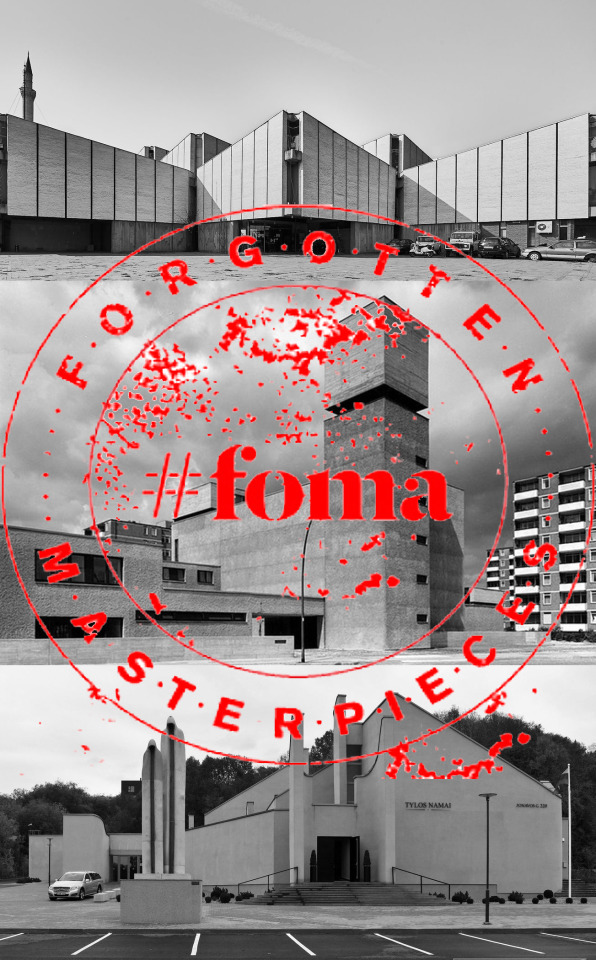
Forgotten Masterpieces will develop a new approach to share knowledge about architecture in the field of architecture via digital means. The project thus addresses the curious gap of audience development practices in the field of architecture as well as the disconnect between audience development and digitisation. Communication is at its core. The question the project asks and responds to is: How can we communicate and share architectural knowledge in the twenty-first century? The Cultural Hackathon will address this issue by leveraging the potential of an open digital platform for architecture communication through collaborative cooperation.
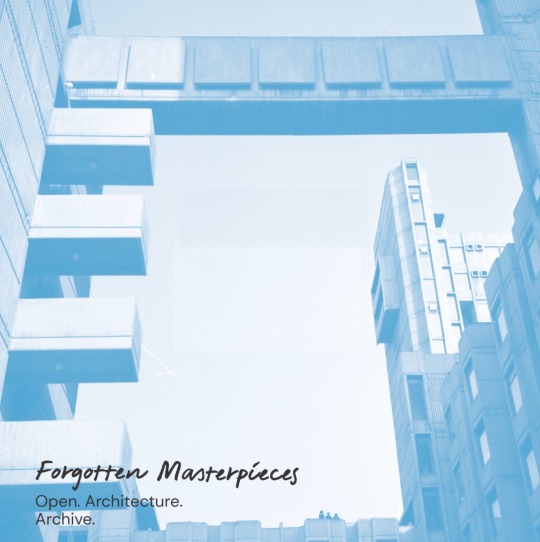
The project has three main outputs as its objective: to create a unique open archive to share architecture knowledge openly and freely on the internet through interoperable archives and other digital media formats to allow for the collaboration of experts and architecture enthusiasts; to build best practices to foster the creation and exchange of architectural knowledge, across different European countries and cultures and to create pan-European “digital champions“ in architecture research to be able to share expertise in online research and communication.
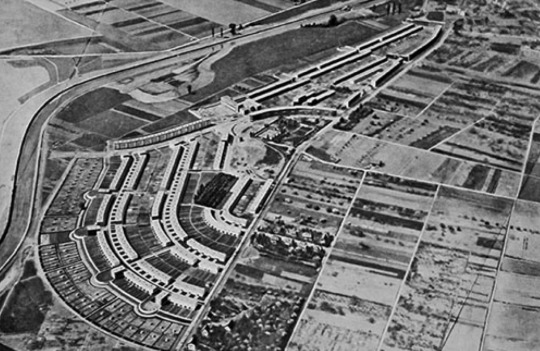
Frankfurt-Römerstadt settlement around 1930. | Photo via arquiscopio
To achieve this, FOMA has united a unique set of partners. As the leading project partner, Architectuul, will make use of its digital expertise and experience in open networks, communities, online audience development and communication and empower its partners to bridge the digital divide. The project can rely on the large international network of DOCOMOMO Germany, an organization with a proven track record for the documentation of Modern architecture. Kaunas 2022 and Contineo 2020 in Skopje stand for two very different European cities which epitomize the rich cross-cultural connections which distinguish sites of local cultural heritage in Europe and their legacy. The interest in FOMA is further underpinned by the strong support of further partners which range from museums and universities, to architecture platforms and online publishers.

* * * * * P R O G R A M * * * * *
14:00 - 14:30 Welcoming FOMA presentation; programme overview (Frankfurt) 14:30 - 15:00 Programme overview (Skopje)
AFTERNOON SESSION (1st wave)
15:00 - 16:00 Issue #1 / CONTINEO / Mentor #1: Allan Tevi Mensah, Lyon (LINA Fellow)
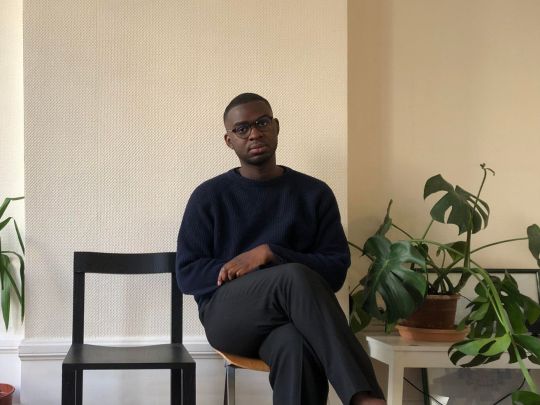
Tevi Allan Mensah is an architect and a visual artist graduated from the Ecole Nationale Superieure d'Architecture (Ensa) of Lyon. After completing two semester in Madrid at the I. Politecnico of the Francisco Vitoria University, in 2020, he came back to France where he worked for the architecture and design workshop Cigue during one year. He carries out a personal practice shared between the architectural project and artistic creation, where eclectic mediums cohabit : from furniture to the scale of the territory, between built projects and research projects. He is interested in the imaginaries of displaced and borderlands territories, as well as the possibility of architecture as a collective mean of communication. He is currently teaching at the Ensa Lyon in the framework of the master studio 'Utopie/Dystopie'.
16:00 - 17:00 Issue #2 / KAUNAS Mentor #2: Eduard Fernandez, Laura Solsona, Barcelona (LINA Fellow)

Laura Solsona is an architect and urban designer. She studied at Escola Tecnica Superior d'Arquitectura de Barcelona (UPC-ETSAB) and Technische Universitat of Berlin (TUBerlin), where she graduated with a MSc in Architecture. From 2015 to 2018, she collaborated in the catalan studio Jornet Llop Pastor arquitectes, where she was involved in urban planning and landscape design projects in different cities of Spain and France. After that, she moved to Australia and worked at Aspect Studios, leading projects in landscape and urban design in Sydney, from 2018 to 2021. She taught at the University of Technology Sydney in 2019 and participated in several design reviews. Eduard Fernandez is an architect and educator. He studied at Escola Tecnica Superior d'Arquitectura de Barcelona (UPC-ETSAB) and Faculdade de Arquitectura da Universidade do Porto (FAUP), where he graduated with an MSc in Architecture. From 2014 to 2021, he worked in different architecture practices in Barcelona and Sydney, and collaborated with cultural institutions such as Fostering Arts and Design (FAD), Arquitectes per l'Arquitectura (AxA), Catalan Board of Architects (COAC), Barcelona City Council, and Casa da Arquitectura. In academia, he was a Research Assistant at the UPC Department of Urbanism and Regional Planning, and more recently a Teaching Associate at Monash University in Melbourne and the University of Technology Sydney, leading several design studios from 2018 to 2021.
17:00 - 18:00 Issue #3 / DOCOMOMO Mentor #3: Meriem Chabani, Paris (LINA Fellow)

Meriem Chabani is an architect, urban planner and founding partner at New South. Her practice is international, prioritizing spaces for vulnerable bodies and territories in tension. She applies the words of bell hooks, putting the margin at the center. By questioning power dynamics and stakeholder relations, her projects include in-depth work on human practices to inform spatial resolution. She currently teaches at the Ecole Nationale Supérieure d’Architecture Paris Malaquais (FR), Royal College of Arts (UK) and HEAD Geneva (CH), after teaching urban planning at the Ecole Polytechnique Fédérale de Lausanne (CH). She has been a guest teacher at Royal Saint Martins (UK), Mohamed VI Polytechnic University (MA), the Department of Architecture at the University of Algiers (DZ) and the Ethiopian Institute of Architecture, Building Construction and City Development (ET). Since 2019, she serves as an expert on affordable housing and inclusive cities for the French delegation at the World Urban Forum. In 2022, she is selected as a Fellow for the LINA European Platform. Her work has been showcased at a number of international architecture Biennials, including Venice, Istanbul, Oslo and Lagos. In 2020 Meriem won a Europe 40 under 40 award from The European Centre for Architecture and The Chicago Athenaeum. In 2023, she is named one of the leading women architects in France by AMC.
- Wrap up Afternoon Session
18:00 - 19:00 Talk: Matevž Čelik (Head of LINA)
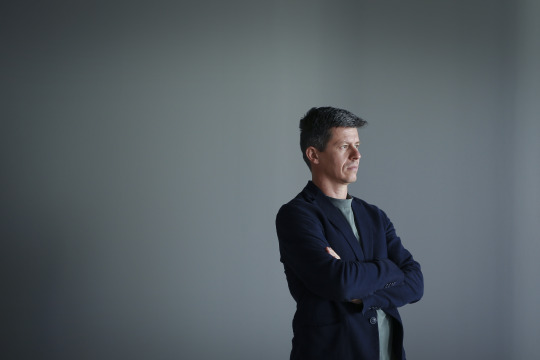
Matevž Čelik is an architect, researcher and cultural producer in the field of architecture and design. He is currently State Secretary at the Ministry of Culture of the Republic of Slovenia, where he is leading the process of modernising the Slovenian museum sector, the management of cultural monuments and the integration of quality architecture into public projects. At the Faculty of Architecture, University of Ljubljana, he is the head of the European Architecture Platform LINA. From 2010 to 2020 he was Director of MAO, Museum of Architecture and Design in Ljubljana, where he founded the first European Architecture Platform Future Architecture and led it from 2015 to 2021.
EVENING SESSION (2nd wave)
19:00 - 20:00 Issue #4 / CONTINEO Mentor #4: Puzzle, Skopje (LINA Fellow)
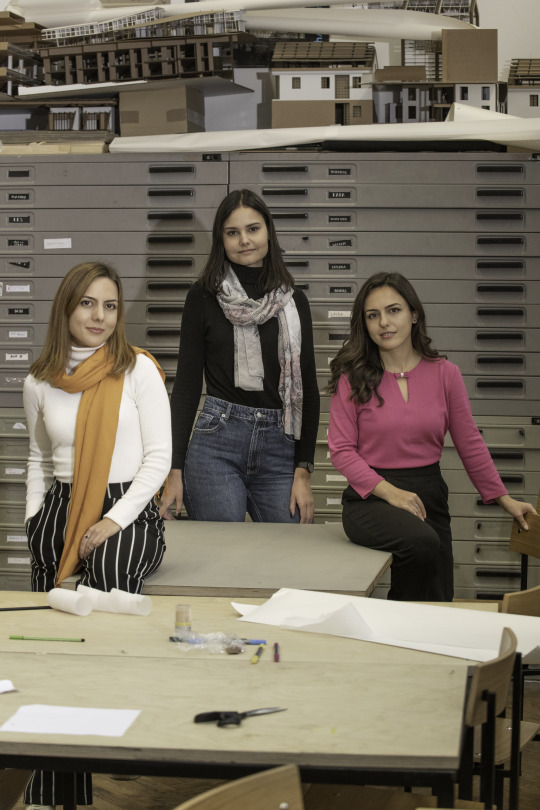
Puzzle is a collective of young and enthusiastic architects established in 2018, comprising of: Adelina Fejza, Sanja Avramoska, Irena Lazarev, and Valbona Fejza - this team brings together a diverse range of skills and experiences to create unique architectural solutions.They have worked on a wide spectrum of projects including exhibitions, interior design, architectural projects, conceptual projects, research, etc. and successfully participated in many competitions.The team has been recognized for their work, winning several awards and honors. They received an Honorable Mention in the Shinkenchiku Residential Design Competition 2019 for "Living in The Future," and took second place in the competition for "Sports Centre Vllazerimi" organized by the municipality of Kichevo, Macedonia. They have also won first place in the international 24h ideas competition by Ideas Forward for the theme "Knowledge", the 1st prize in the "Industry in the City" competition awarded by the Faculty of Architecture, UKIM in Macedonia, and they won the 2nd place in the international 24h ideas competition by Ideas Forward for the theme "Ocean". Additionally, they have been selected as fellows in the Future Architecture Platform and LINA Platform. Puzzle has also been actively involved in conferences, presentations and workshops, showcasing their ideas and insights. They have participated in conferences such as the LINA Conference 2022 on "Architecture and the Future of the Planet" and the 2nd International and Interdisciplinary Conference on Spatial Methods for Urban Sustainability (SMUS Conference). They have also presented at the Creative Exchange 2021 on "Landscapes of Care", demonstrating their commitment to exploring the intersection of architecture, sustainability, and social impact, and they lead a student workshop during Tirana Design Week 2021- Post Pandemic City, named “The future of terraces/balconies as in-between spaces”.Throughout their work, they try to have a research-oriented approach thus creating more sustainable, outspoken, and creative solutions for all architectural challenges.
20:00 - 21:00 Issue #5 / DOCOMOMO Mentor #5: Florian Köhl, Berlin (SHA Fellow)

Prof. Florian Köhl, DipArch. Bartlett (UC London) fatkoehl architects is a Berlin based office founded by architect Florian Köhl in 2002. A major trait of the studio's work is its constant search for ways of relating people through architecture with their urban surroundings. In this context, the offices spearheaded efforts to elaborate alternative architectural production models on an all but stale Berlin housing market in the early 2000s. They were instrumental in the development of a new building approach - co-housing - which foresaw the major involvement of their clients in the building process and lead to a new type of architecture fusing a client's creativity with the strong design vision of the architect. In order to understand the role of architecture in urban ecosystems, in 2015 he founded together with Christian Burkhard the research-platform Quest. Prof. Florian Köhl was visiting professor at the University of Kassel, he researched and taught for several years at the Technical University of Berlin and the Bartlett School of Architecture, London. He is also a co-founder of the NBBA (Network of Co-housing Architects in Berlin), Teameleven and Instant City, Berlin.
21:00 - 22:00 Issue #6 / KAUNAS Mentor #6: Sonja Dragović, Lisbon (Digital FAP Fellow)
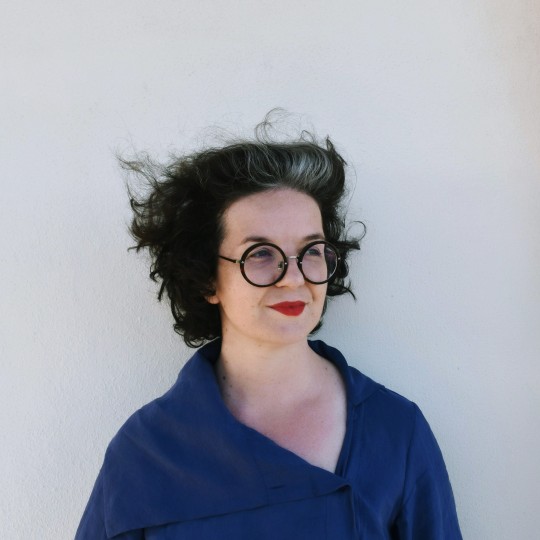
Sonja Dragović is a PhD candidate and a researcher at the Center for Socioeconomic and Territorial Studies – DINÂMIA’CET-Iscte at the University Institute of Lisbon, where she is pursuing doctoral studies at the Department of Architecture and Urbanism as a scholarship holder of the Portuguese Foundation for Science and Technology. She graduated from the Faculty of Economics of the University of Montenegro and completed the 4CITIES master's degree in urban studies at the Free University of Brussels (ULB) in 2015. Her research interests include socially engaged architectural practices, commons, urban social movements, and the interplay between activism and urban governance. Her own activist efforts focus on working with local communities toward improving participatory methods, public policies, and shared spaces. She is the author and co-author of several books, research papers, expert reports, and policy proposals related to these issues. She is a member of activist and research collectives KANA/ko ako ne arhitekt (Podgorica) and Laboratório de Estudos Urbanos (Lisbon), and one of the editors of LeftEast.
22:00 - 23:00 Talk prof. Kyong Park, Seoul/San Diego [2086: Together How?]
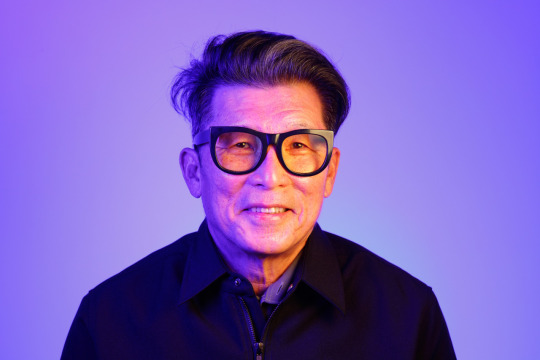
Kyong Park is a professor in the Department of Visual Arts at the University of California, San Diego (since 2007) and was the founding director of StoreFront for Art and Architecture in New York (1982–1998); the International Center for Urban Ecology in Detroit (1998–2001); and the Centrala Foundation for Future Cities in Rotterdam (2005–2006). There, he co-produced Lost Highway Expedition, an expedition through nine major cities of ex-Yugoslavia and Albania in 25 days, in which several hundred people participated [2006]. He was a curator for the Gwangju Biennale (1997) and the Artistic Director and Chief Curator for the Anyang Public Art Project 2010 in Korea, where he curated 30 projects and commissioned 23 international artists, including Suzanne Lacy, Marjetica Potrč, Rick Lowe, Raumlabor, Lot-ek, Mass Studies, Chan-Kyong Park. Kyong Park was also a Loeb Fellow at Harvard University (1996/97), Visiting Chair of Urbanism at the University of Detroit Mercy, School of Architecture (2000-2001), and the editor of “Urban Ecology: Detroit and Beyond,” a book on his projects, with contributions from 32 architects, artists and critics [2005]. His solo exhibitions are Kyong Park: New Silk Road at the Museo de Arte Contemporàneo de Castilla y León in Spain (2009–10), and Imagining New Eurasia, a sequence of three research art exhibitions that visualized continental and urban relations between East and West, which was commissioned and exhibited at the Asia Culture Center in Gwangju, South Korea (2015–18). He is the author of Urban Ecology: Detroit and Beyond (2005) and Imagining Eurasia: Visualizing A Continental History (2019).
23:00 - 02:00 Discussion with a break
LATE NIGHT SESSION (3rd wave)
02:00 - 03:00 Issue #7: DOCOMOMO Mentor #7: Aleksandra Globokar, Melbourne (Correspondent)

03:00 - 04:00 Issue #8: KAUNAS Mentor #8: Urša Komac, Sydney (Correspondent)

Urša Komac is a Senior Lecturer and the Director of Academic Programs in Architecture at Western Sydney University. She is a registered architect from Europe and holds a BA in Architecture, MSc in Landscape Architecture from the University of Ljubljana and a PhD from Barcelona School of Architecture. She has worked as an architect and as an architectural critic for more than 20 years. She has taught at the Boston Architectural College, the Barcelona School of Architecture, the University of New South Wales, the University of Sydney and Canberra. In 2018 she was a Visiting Research Fellow at Tokyo University of the Arts and a Marie Curie Fellow at the Barcelona School of Architecture, exploring connections between academia and practice. From 2015-17 she was a CI on an OLT teaching grant, exploring new paths for a PhD in architecture. Her research interests are architecture and the city, public space, heritage and architectural education. In addition to several articles, she co-authored a monograph on architect Bogdan Bogdanovic. She received the Piranesi Award for the Rest Areas for the Bicycle Paths in the Slovene Karst with Spela Kuhar. Her Observation Points in Škocjanski zatok were recently selected for the 9th International Biennial of Landscape Architecture and nominated for the Mies van der Rohe Award. Her co-authored book (with Pablo Guillen) City Form, Economics and Culture: For the Architecture of the Public Space is out in 2020.
04:00 - 05:00 Issue #9: CONTINEO Mentor #9: Daniel Languré, Mexico City (Correspondent)

Daniel de León Languré Bachelor of Architecture (ITESM 2012) and M. Arch (PUC 2017). Since 2013 and in parallel with his own practice, he has worked with local studios as Residente de obra and Project Architect. He was co-founder of Diseño Espacial (2013-2019)l, an architectural office that explored diverse aesthetic, perfomatic and construction practices around Mexico city’s peripheria. Before and after his M. Arch degree he took diploma courses focused on the history of prehispanic and colonial architecture in México. In 2017 he started his participation as a teacher assistant and professor in universities in both Chile and Mexico. In 2019 he was commissioned as a curator of an Associated Project for the 2019 Lisbon Architecture Triennale and has participated as an Academic Representant in the 2020 Quito Panamerican Architecture Biennale. In 2021 his work was exhibited at the 17th Venice Architecture Biennale as part of the Prishtina Public Archipielago and Co-habitats section. He is currently part of the British office based in Mexico OBVdS Workshops as a project architect and is also in charge of his independent practice Intermedio, an studio interested in the manner in which socially and politically relevant questions of Mexican society are raised through the architectural representation of utopian approaches. Retired soccer fan, closet drummer and nostalgic of Frank Zappa and Italian progressive rock.
MORNING SESSION (Wrap-up & Solutions)
9:00 - 10:00 Issue #10: KAUNAS Mentor #10: Merve Bedir, Istanbul (Correspondent)
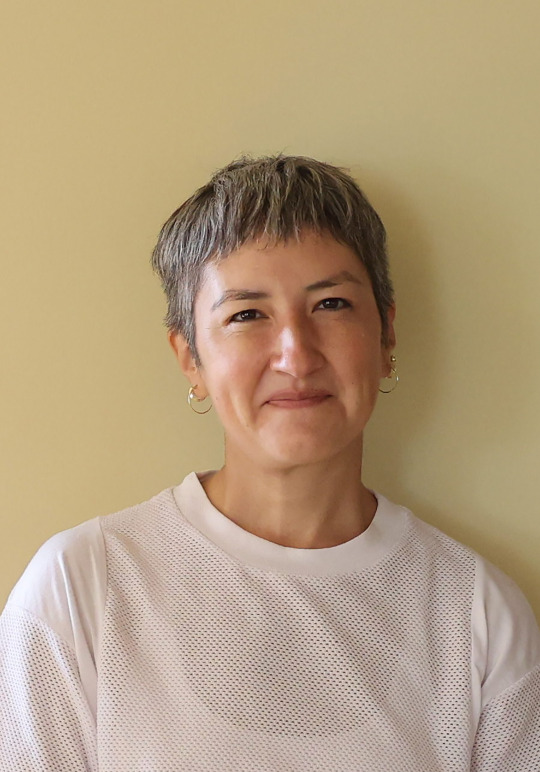
Merve Bedir is an architect. Her work focuses on infrastructures of hospitality and mobility. A second line of work refers to the collective intelligences and imaginaries of landscape. She is a postdoc researcher in Critical Media Lab, Basel, and tutor at Design Academy Eindhoven. She holds a PhD from Delft University of Technology, and a BArch from Middle East Technical University in Ankara. She is a co-initiator of Aformal Academy in Pearl River Delta region, Black Book Assembly in Hong Kong, Kitchen Workshop in Gaziantep, and Center for Spatial Justice in Istanbul. Merve's current design project involvements include a smart agriculture facility in Ningde, and Postane repair and regeneration project in Istanbul. Merve curated Vocabulary of Hospitality, Istanbul and Rotterdam (2014 and 2022); uncommon river, Plovdiv (2015); and co-curated Automated Landscapes (2017-19). Her work has taken part in Istanbul Design Biennale (several editions), Urbanism and Architecture Biennale Shenzhen (several editions), Sao Paulo Architecture Biennale (2017), and Venice Architecture Biennale (2021); and most recently exhibited in Cooper Hewitt Smithsonian Design Museum (2023). Merve co-chairs Rethinking Partnerships panel of United International Architects Conference in 2023. Her work was funded by Prins Claus Funds, European Cultural Foundation, United Nations Development Program, among others. Her projects were reviewed in The Guardian, Metropolismag, Avery Review, and Frieze Magazine.
10:00 - 13:00 Presentations of solutions and review of the issues Mentor #10: Yvette Vašourková, Prague (Correspondent)

Yvette Vašourková (*1976, Brno, Czechoslovakia) studied architecture and urban design at the Berlage Institute in the Netherlands as well as at Faculty of Architecture of the Czech Technical University in Prague, where she completed her PhD with a theses title: The Importance of a Metropolitan Palace for Sustainable. City. She is co-founder of Centre for Central European Architecture (CCEA) a non-profit organization and with Igor Kovačević she founded the architecture firm MOBA studio. She is member of Woking Group New European Bauhaus ACE. She was nominated as Architect of the Year 2016 by Czech Chamber of Architects. She is active as an architect, a curator and an initiator of urban transformations. Recently she is involved in in the project Negrelli Viaduct - The Opportunity for Creative City, which was awarded by Czech Architecture Award in 2017. In 2019 she was a guest professor at L´ESA Paris. She is leading design studio at Archip, international school of architecture Prague and she is guiding students of doctoral studies at Faculty of Architecture, CTU Prague. She will conduct her post doc research as Fulbright visiting scholar 23/24 at Pratt Institute New York.
13:00 - 14:00 Summary, Final Remarks, Closing
4 notes
·
View notes
Text
The week ahead: Key developments impacting global politics & markets
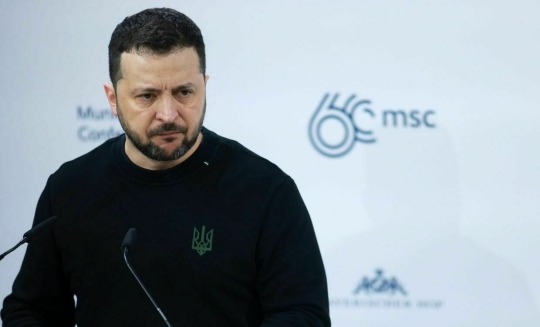
Editor’s note: This article is an on-site version of KI Insights' The Week Ahead newsletter covering events from Feb. 10-Feb. 16. Sign up here to start your week with an agenda of Ukraine-related events, delivered directly to your inbox every Sunday.
This week’s key event is the 61st Munich Security Conference (MSC), taking place on Feb. 14-16. European defense, Europe-US relations, and Ukraine support/ ceasefire talks will take center stage (all major themes at a somewhat nervous Feb. 3 “informal retreat” of EU 27 + UK + NATO leaders; Ukraine was not invited).
Special US Envoy for Ukraine and Russia Keith Kellogg is expected to visit Kyiv, either before heading to Munich or “later in February” (note: while it would make sense for Kellogg to visit Kyiv before Munich, heartening Ukrainians and signaling a peace deal will not be made “over their heads”, we see some uncertainty)
Kellogg stated that US President Donald Trump’s team is developing a reliable plan to end the war within 100 days. Kellogg is expected to attend MSC (but not to present the plan, which is Trump’s prerogative), together with Vice-President JD Vance (he will travel there from the AI Action Summit on Feb. 10-11 in Paris) and possibly the US president himself.
(note: This year’s MSC comes just a week before snap elections in Germany, which could influence ongoing German support for Ukraine.)
Earlier, the European Parliament will hold a plenary session in Strasbourg on Feb. 11 on maintaining the EU’s unwavering support for Ukraine, which is awaiting a vote. The session will review ongoing and future commitments across military, economic, and humanitarian assistance and Ukraine’s EU accession process
Key topics expected are additional weapons deliveries, long-term security assistance, joint procurement of ammunition and air defense systems, and legal and political challenges to using Russian assets held within the EU to finance Ukraine’s reconstruction.
MEPs will also discuss renewing the Agreement on Cooperation in Science and Technology between the EU and Ukraine. The agreement facilitates joint research projects, knowledge exchange and funding opportunities between Ukrainian and EU institutions. Renewal would ensure continued access to collaborative scientific initiatives.
The “Ramstein summit” of the Ukraine Defense Contact Group (UDCG) is expected to take place on Feb. 12 in London under the chairmanship of the UK (rather than the US, likely a signal of US disengagement from Europe). UDCG includes over 50 countries (incl. all 32 NATO members). It previously met at the US Ramstein Air Base in Germany
If you have an upcoming event that you would like featured in our newsletter, please get in touch via [email protected].
KI Insights
Visit KI Insights to learn more and subscribe to the insider weekly newsletter
visit ki insights
Other Events and Milestones:
Feb. 12 - Rebuilding Ukraine: Key Investment and Financing Insights (From 11:00 EET). A webinar providing an overview of investment and financing opportunities for Ukraine’s reconstruction. Register here.
Feb. 13 - Dutch Agrifood Platform Ukraine Meeting, (10:30 - 13:30 EET). A networking event in the Hague for the Dutch agrifood industry to connect, learn, and explore opportunities in Ukraine. Register here.
Feb. 13 - Reconstruction Opportunities for Dutch Entrepreneurs (13:00 - 14:00 EET). This session in the Hague will cover how International Financial Institution’s support impacts Ukraine’s reconstruction and opportunities for Dutch companies. Register here.
Feb. 13-14 - Mind Export Summit 2025 (From 09:50 EET): Held in Kyiv and organized by Mind Business Publication, this event will bring together business representatives with practical experience in international markets and those looking to scale beyond Ukraine. Buy tickets here.
Feb. 13-14 - 22nd International Conference Black Sea Grain Europe (From 10:00 EET). Held in Prague, Czech Republic, and organized by the IFC in cooperation with the Ukrainian Agribusiness Club Association. Register here.
Feb. 15 - the Day of the Military Journalist in Ukraine. A day of remembrance for all military journalists, correspondents, press officers, and public relations specialists who died in the line of duty.
Feb. 15 - Solidarity with Ukraine’s Fight Against Russian Occupation (13:00-17:00 EET). A trade unionist conference in London, organized by the NEU Ukraine Network in support of Ukraine’s resistance to Russian imperialism.
Opinion: Berlin’s coalition drama puts Ukraine — and Europe — at risk
Donald Trump’s re-election has sent political shockwaves across the Atlantic, pushing Germany — Ukraine’s second-largest donor — into a decisive moment. The election has intensified internal divides and sparked a reckoning over Germany’s role in European security. For years, German leaders deferred…

The Kyiv IndependentFelix Blatt
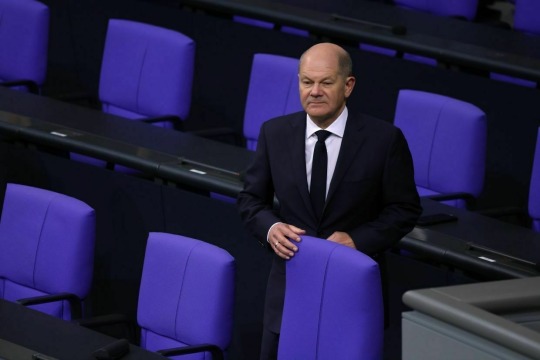
0 notes
Text
Mechatronics Engineering Masters in Germany for Indian students
The German environment stands uniquely positioned as an international center of innovation alongside engineering research and state-of-the-art technology suitable for mechatronics engineering students. India's students can find exactly what they need by studying in Germany where world-leading educational quality joins forces with low tuition rates together with abundant career opportunities.
The following article examines how a German master's degree in mechatronics engineering serves Indian students through a presentation of top institutions' admission conditions and tuition details along with scholarship programs and potential career paths.
Why Study Mechatronics Engineering in Germany?
Global Leader in Engineering and Technology Engineering stands as Germany's foremost strength because it hosts companies among the world's most influential manufacturers of automobiles and robotics and automation systems. Students earn placement near the forefront of technological progress by pursuing a master's degree in mechatronics at German universities.
Affordable Education German public institutions grant totally free or minimal-tuition education opportunities for international students thereby delivering an affordable educational option. Private universities in Germany charge tuition rates that match or surpass those of educational institutions throughout the globe.
Industry Connections The industry collaborations between German universities and companies enable them to offer practical instructional activities together with industrial placement experiences and research programs for their students. Education programs that unite classroom learning with practical applications enable students to leave with professional industry competencies.
Globally Recognized Degrees Analytical programs offered by German universities maintain global respect because of their universal recognition. Native and international students receive knowledge and specialized expertise enabling them to succeed in diverse international career markets.
Post-Study Work Opportunities International students who study in Germany can take advantage of the post-study work visa that lasts for 18 months to search for jobs inside Germany when their academic program finishes.
Top Universities Offering Mechatronics Engineering in Germany
Here’s a list of some of the top universities for pursuing a master’s in mechatronics engineering:
University of Stuttgart
Program: MSc in Mechatronics
Highlights: The course teaches students about robotics and sensor systems along with embedded systems fundamentals. Students who study at Stuttgart enjoy excellent research and internship opportunities because the city stands near substantial industrial areas.
Technical University of Munich (TUM)
Program: MSc in Mechatronics and Robotics
Highlights: TUM stands among Europe's top universities because it delivers state-of-the-art educational infrastructure together with extensive academic connections with industry.
RWTH Aachen University
Program: MSc in Mechatronics
Highlights: The research-centered and practical-oriented RWTH Aachen earns its recognition through partnership work with primary technology companies.
Leibniz University Hannover
Program: MSc in Mechatronics
Highlights: The program promotes interdisciplinary study by bringing together electrical engineering and mechanical engineering systems along with computer engineering elements.
University of Bremen
Program: MSc in Control Systems and Mechatronics
Highlights: The institution maintains a comprehensive academic framework in autonomous systems robotics combined with advanced automation education.
Eligibility Criteria
Indian students need to meet the following eligibility requirements to pursue a master’s in mechatronics engineering in Germany:
Educational Background
A bachelor's degree in mechanical engineering, electronics, electrical engineering, or a related field with a strong academic record.
Language Proficiency
English-Taught Programs: IELTS (6.5 or higher) or TOEFL (90 or higher).
German-Taught Programs: Proficiency in German (TestDaF or DSH exams).
GRE Scores
Researchers applying to programs within scheduling universities need to present GRE scores but these are not standard requirements for all programs accepting students.
Statement of Purpose (SOP) and Letters of Recommendation (LORs)
The application process demands strong submissions of LORs from academic professors or professional referees alongside an overview-rich SOP.
Work Experience
Prior work experience in a related field remains optional although it adds additional strength to applications.
Cost of Studying and Living in Germany
Tuition Fees
Public universities: Free or nominal semester fees (€150–€350 per semester).
Private universities: Tuition fees range from €10,000 to €15,000 per year.
Living Expenses The average monthly cost of living in Germany for a student is around €850–€1,200.
Accommodation: €300–€500
Food: €150–€250
Transportation: €50–€100
Miscellaneous: €100–€200
Scholarships for Indian Students
Several scholarships are available to help Indian students manage their expenses while studying in Germany:
DAAD Scholarships
The program supports college tuition fees in addition to covering some or all student living expenses.
Erasmus+ Program
Students enrolled in European exchange programs receive funding as an international support mechanism through this program.
Heinrich Böll Foundation Scholarships
Available for students with outstanding academic records and social engagement.
Deutschlandstipendium
The benefit-based academic grant supports bright students by offering monetary support.
Career Opportunities After Completing an MSc in Mechatronics
Engineered through Germany's thriving engineering industry students gain numerous career options following graduation. Here are some of the industries where mechatronics engineers are in high demand:
Automotive Industry
Companies from BMW to Audi and Volkswagen search for qualified mechatronics engineers to implement automation and robotics systems.
Robotics and Automation
Germany demonstrates worldwide leadership through its robotic technologies and industrial automation capabilities thus providing exciting design and implementation roles for automated systems engineers.
Aerospace Industry
Mechatronics graduates find employment with major aerospace firms such as Airbus when they specialize in control systems or robotics.
Electronics and Semiconductor Industry
The opportunity for designing and manufacturing high-end electronic systems exists in abundance.
Research and Development
Research institutions together with universities seek fresh graduates to participate in their advanced mechatronic project work.
Benefits of Studying Mechatronics in Germany for Indian Students
World-Class Education German academic institutions maintain an internationally recognized standard while conducting research-oriented education.
Cultural Diversity Because of its diverse international student body Germany creates an environment where Indian students can connect with students from multiple different backgrounds.
Internship Opportunities All students have the chance to learn practical industry experience through internship placements at international businesses which build their employability.
Stay Back Options Students get eighteen months after completing their education to search for work opportunities in Germany through this particular visa program.
Pathway to Permanent Residency Graduates who secure a job can apply for permanent residency, making Germany a long-term career destination.
Challenges and Tips for Indian Students
Language Barrier
Challenge: Even though English instruction exists in numerous programs students must understand German for professional experiences and communicate with native speakers during their day.
Tip: Making German language education start early in your academic journey can help with your settlement process.
Cultural Differences
Challenge: Become adjusted to a foreign cultural environment this becomes arduous.
Tip: Be open-minded and engage with the local community to integrate smoothly.
Academic Pressure
Challenge: German universities have rigorous academic standards.
Tip: Stay disciplined and seek help from professors and peers when needed.
Accommodation
Challenge: Finding affordable housing can be competitive in cities like Munich or Berlin.
Tip: Apply for student housing early or explore shared apartments.
How to Apply for a Master’s Program in Germany
Research and Shortlist Programs Use platforms like DAAD or university websites to find programs that align with your interests.
Prepare Required Documents Ensure you have all necessary documents, including academic transcripts, language test scores, and SOPs.
Apply via Uni-Assist or Directly Many universities accept applications through Uni-Assist, a centralized portal.
Attend Interviews (If Required) Some universities may conduct interviews as part of the admission process.
Secure a Student Visa Apply for a German student visa well in advance and ensure you meet financial proof requirements.
Conclusion
The country of Germany offers Indian students one of the most desirable environments to study for their Master’s degree in mechatronics engineering. The country of Germany offers an ideal setup for students through its quality education along with professional links low expenses and numerous professional choices.
Mastering education in Germany for Indian students starts with thorough preparation steps. Selecting Germany offers students the opportunity to both study at excellent institutions and create successful prospects within the transforming field of mechatronics engineering.
Are you looking for the best study abroad consultants in kochi, Kerala
0 notes
Text

Dear all,
We would like to invite you to attend February's Wageningen Evolution & Ecology Seminar (WEES) and the related workshop. The seminar will take place on Thursday 13th February, 16:00-17:00 in Orion C1040. Dr. David Bierbach from the Humboldt University (Germany) will present his work on clonal Poecilia Formosa and Robot fish in a seminar titled 'How to use Clonal Fish and Biomimetic Robots to investigate Ecology and Evolution.' After the seminar, everyone is invited to join for free drinks at The Spot, where it will be possible to interact more directly and informally with Dr. Bierbach.
There will also be a workshop with Dr. David Bierbach prior to the seminar titled 'From the Field to the Lab and Back - Experimental Design in Behavioral and Evolutionary Ecology' at 14:00 in Orion B3032. In the workshop, Dr. Bierbach will discuss both approaches of fieldwork and labwork, how both approaches can supplement each other and what the potential pitfalls, shortcomings and opportunities are. The workshop is aimed for HBO, MSc, PhD students and postdocs. Registration is required, so please email Peter Kwant ([email protected]) to register. See below for more information on the seminar and workshop.
Please forward this information to anyone who could be interested. Thank you!
Seminar (16:00-17:00 - Orion C1040)
How to use Clonal Fish and Biomimetic Robots to investigate Ecology and Evolution.
Dr. David Bierbach
Researcher, Humboldt University & Leibniz Institute of Freshwater Ecology and Inland Fisheries Berlin, Germany
Phenotypic variation among individuals is thought to be caused by differences in genes and/or environmental conditions. Therefore, if these sources of variation are removed, individuals are predicted to develop similar phenotypes lacking individual variation. In sharp contrast to these predictions, we find substantial individual variation in behavior among genetically identical individuals of the clonal fish, Poecilia formosa, that were isolated directly after birth into highly standardized environments. This variation does not develop over the ontogeny but is present at day 1 of the fish’s life. In contrast to the current research paradigm, which focuses on genes and/or environmental drivers, our findings suggest that individuality might be an inevitable and potentially unpredictable outcome of the very early embryonic development. In order to study both causes and consequences of these individual differences, we developed a biomimetic robot - the so-called Robofish - that is able to integrate itself interactively into groups of fish. This tool allows us to decouple behavior from morphology and test hypothesis arising from theoretical considerations on social and collective interactions. I will outline how Robofish helped us to find a link between differences in swimming speed and collective patterns in shoaling fish and how leader-follower interactions depend strongly on the anticipated reaction of the social partner.
Workshop (14:00-15:00 - Orion B3032)
From the Field to the Lab and Back - Experimental Design in Behavioral and Evolutionary Ecology
To answer biological questions, scientists often perform laboratory experiments or do observations in the wild. Both approaches have their merits but I postulate that we can answer our questions better if we combine both approaches. In this workshop I will thus present own experiences about working experimentally both in the laboratory as well as in the field with fishes. We will discuss examples of laboratory and field experimental designs and how both approaches can supplement each other and what are the pitfalls, shortcomings and opportunities.
Lunch and dinner with Dr. Bierbach
A small group will have lunch and dinner with our invited speaker (cost on the participants). If you are interested in joining for lunch and/or dinner with Dr. Bierbach, please contact Peter Kwant ([email protected]). You may of course also simply decide to join for dinner on the day of the seminar.
WEES background & call for new members WEES is an initiative of PhD students and postdocs at Wageningen University to organize a continuing series of stimulating seminars on contemporary topics in evolution and ecology. For this series we invite researchers from all over the world who have leading roles in their field. We aim to bring together different groups at Wageningen University using a variety of systems, but with a common interest in evolutionary and ecological questions. WEES is funded by graduate schools PE&RC, WIMEK, EPS and WIAS.
Interested in joining the WEES committee and organizing seminars yourself? WEES is looking for new members! We aim for a broad and diverse range in topics and would like to welcome new members to help and include topics not represented yet. If you are curious, send an email to [email protected] and join one of our meetings.
For more information please visit: www.weeswageningen.nl or follow us on Twitter @weeswageningen
0 notes
Text
How Good Is Your Heart?
By Dr Catherine W Dunne MSc. D. (Hon), RGN, Reiki Master (RGMT), M.H.I.T. Disclaimer: this article I have translated from German to English. In Germany and in USA, they are conducting research regarding best cholesterol lowering treatment, by focusing on Lipoprotein-a. Lipoprotein-a is the cause of fatty livers and the clogging up your coronary arteries. This research is still ongoing with very…

View On WordPress
0 notes